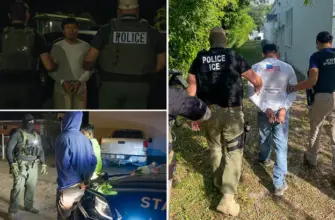The U.S. Department of Justice (DOJ) admitted Friday that the current whereabouts of Kilmar Abrego Garcia, a Maryland resident wrongly deported to El Salvador last month, are presently unknown.
This admission follows a Thursday ruling by the Supreme Court upholding a lower court’s decision to facilitate Garcia’s return from an El Salvadoran prison—a facility known for housing hundreds of criminals and gang members. Prior to this admission, U.S. District Judge Paula Xinis had ordered the DOJ to provide detailed information regarding Garcia’s situation.
During a Friday afternoon hearing, Judge Xinis repeatedly pressed DOJ attorney Drew Ensign about Garcia’s location. Ensign stated that while Garcia is in the custody of Salvadoran officials, he lacked confirmation of his whereabouts. As Judge Xinis pointed out, “I’m not asking for state secrets. I’m asking where one man is…The government was prohibited from sending him to El Salvador.”
Ensign repeatedly stated that he had no information on Garcia’s location or status, and confirmed the DOJ did not have evidence contradicting the assertion that Garcia remained under the control of the Salvadoran government. When questioned about efforts to bring Garcia back to the United States, Ensign indicated it was “unclear” if any steps had been taken.
Judge Xinis expressed frustration with the DOJ’s response, stating, “It is quite clear the government is playing a game with their own lawyers.”
In a written response filed Friday, the DOJ cited practical limitations. They argued that the court’s deadline was “impracticable” given the short time frame after the Supreme Court’s order and requested additional time to brief the issue of what constitutes “facilitating” or “effectuating” Garcia’s return, particularly considering he is in the custody of a foreign sovereign.
The DOJ also claimed insufficient time was provided to review the Supreme Court’s order after an administrative stay was lifted and emphasized that “foreign affairs cannot operate on judicial timelines” due to sensitive international considerations.
Court filings reveal Garcia’s history:
- He fled El Salvador in 2006 to escape gang violence, facing threats of kidnapping and death intended to pressure his parents.
- In 2011, he entered the United States illegally and settled in Maryland with his older brother.
- Around 2016, he formed a relationship with Jennifer Vasquez Sura, a U.S. citizen, and they started a family, including a son with autism and other disabilities.
- His wrongful deportation occurred after being detained by police at a Home Depot in Maryland while seeking employment, following questioning about gang affiliations despite his denials.
- He was arrested again on March 12th after picking up his son from his grandmother’s house following a shift as a sheet metal apprentice.
The case highlights the complexities of immigration law and raises concerns regarding government accountability in cases of wrongful deportation.


